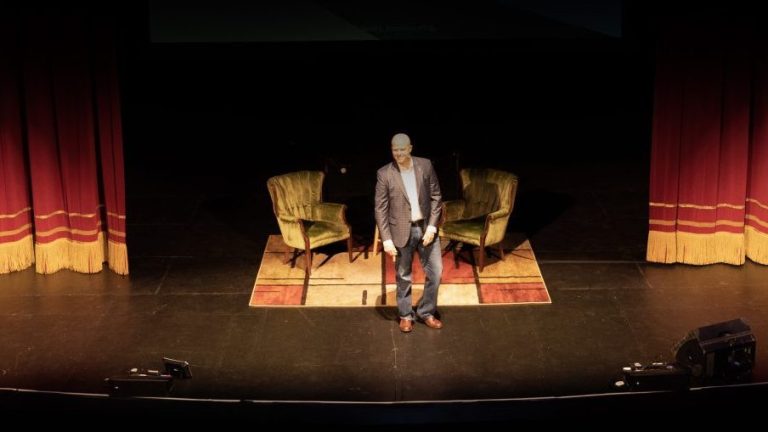Imagine this.
As your health system’s CEO, you finish a meeting with a physician, stand to walk them to your office door, and present them with a handheld tablet on which they determine your compensation. The choices are 0%, 10%, 20%, and 25%. The process repeats throughout the day as you meet with your Board Chairman, a Vice President who reports to you, a housekeeping employee, and your Administrative Assistant.
As a servant leader, your organization has determined a portion of your compensation will be similar to that of a server in a restaurant. To keep the math simple, if you earn an annual salary of $100,000, your base pay will be reduced to $80,000, and you will have the opportunity to “make it up” through service to your key constituents. If you meet or exceed expectations, a generous gratuity will be granted. Leave them wanting, and no tip is given.
Non-profit leaders see themselves as stewards of the organizations who seek to grow the resources and reputation of the organizations entrusted to them (van Dierendonck et al., 2017). Servant leaders focus on the development of their followers.
Authentic leadership and servant leadership are closely aligned. Eva suggested that “servant leaders are authentic not for the sake of being authentic, but because they are driven either by a sense of higher calling or inner conviction to serve and make a positive difference for others” (Eva et al., 2019, p. 113). When considering the context of leadership in rural medicine, authentic leaders and servant leaders conform nicely to the space. Authentic leaders need and take opportunities to interact with their constituents. Servant leaders view hospital leadership as an opportunity to serve multiple constituents.
Let’s go back to that meeting with the physician. This doctor came to speak with you about her compensation. She feels she should be paid for taking call above and beyond the one-in-three medical staff bylaw requirements. You listen intently, processing the broader organizational impact of such a move. A commitment is made to consider the request and get back to her.
The handheld is offered. The physician looks you in the eyes and chooses 10%. You receive this message: “you heard me, now what are you going to do about it?”
How might this instant application of a gratuity impact your engagement? Would your decision be affected? Would the tone of your voice and your listening practices be modified in a more remarkable attempt to show interest and concern? Remember, when you return to this physician to report your decision, the handheld device will be presented for another gratuity round.
Gratuity is “something given voluntarily or beyond obligation, usually for some service” (Merriam-Webster, retrieved June 22, 2022). Leaders provide service in every interaction, and the concept of instant feedback is thought-provoking. A leader might claim they have little control over the mindset, agenda, or temperament of the people they serve, rendering the concept of tipping each encounter unfair. A server in a restaurant has no control over parking, the table where customers are assigned, the temperature of the food, or prices. Yet they are subject to the discretion of those they serve.
Why not leaders?
Peter Northouse describes servant leadership as the caring principle, with leaders as servants who focus on their followers’ needs to help these followers become more autonomous, knowledgeable, and like servants themselves (Northouse, 2018). (p. 24). Eva et al. (2019) expanded Greenleaf’s definition by including the success and prosperity of the broader community.
Some of the world’s leading corporations have adopted servant leadership practices, including Starbucks, Southwest Airlines, Ritz-Carlton, Marriott, and Intel (Eva et al., 2019). In the seminal work on servant leadership, Greenleaf (1977) stated, “Servants by definition are fully human. Servant leaders are functionally superior because they are closer to the ground—they hear things, see things, know things, and their intuitive insight is exceptional. Because of this, they are dependable and trusted.”
As servant leaders, we are motivated for reasons far beyond financial returns to care for those we serve. I interviewed CEOs, board chairpersons, hospital executives, physicians, and staff members at five health systems to determine effective engagement methods. Three themes emerged from the research.
This qualitative research determined that all three best practices for engagement must be implemented.
Engage and Connect at a Personal Level
Ask great questions and generate positivity
- Develop outstanding listening skills and practice them regularly
- Be accessible and show an interest in member concerns
- Find ways to express gratitude
- Find ways to interact through rounding
Engage with Intent through Various Mediums
- Find a rhythm of regular communication with key constituents
- Be transparent with high frequency
- Use multiple channels to communicate your message
- Look for ways to overcome engagement challenges
- In times of crisis, be intentional in communicating differently
Be Mission-Focused
- Keep the focus on the mission and know your audience – be prepared
- Vocally support team members and encourage healthy debate
- Ensure team members feel informed and included
- Build a structure to support key leaders
- The Executive is part of the community – get involved
If your compensation depends upon the evaluation of others defined at the moment of interaction, these best practices give you the best chance of reaching and exceeding your previous salary.
And who is to say our compensation and career success do not, directly and indirectly, revolve around how we engage with our key constituents?
References
- Eva, N., Robin, M., Sendjaya, S., van Dierendonck, D., & Liden, R. C. (2019). Servant leadership: A systematic review and call for future research. The Leadership Quarterly, 30(1), 111–132. https://doi.org/10.1016/j.leaqua.2018.07.004
- Gratuity Defined. (n.d.). Merriam-Webster. Retrieved June 21, 2022, from https://www.merriam-webster.com/dictionary/gratuity
- In-text citation
- Greenleaf, R. K. (1977). Servant leadership: A journey into the nature of legitimate power and greatness. Paulist Press.
- Northouse, P. G. (2018). Leadership: Theory and practice (8th ed.). Sage Publications.
- Schreiner, D. L. (2022). What CEO practices help rural hospitals engage constituents in volatile, uncertain, complex, and ambiguous times?
- van Dierendonck, D., Sousa, M., Gunnarsdóttir, S., Bobbio, A., Hakanen, J., Pircher Verdorfer, A., Cihan Duyan, E., & Rodriguez-Carvajal, R. (2017). The cross-cultural invariance of the servant leadership survey: A comparative study across eight countries. Administrative Sciences, 7(2), 1–11. https://doi.org/10.3390/admsci7020008





